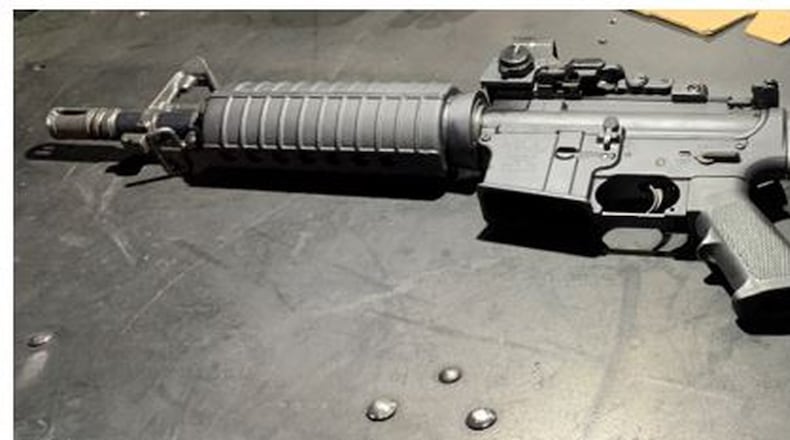The proposed federal rule would clarify when accessories attached to pistols convert them into weapons regulated by the National Firearms Act, DOJ says in a news release.
“The National Firearms Act imposes heightened regulations on short-barreled rifles because they are easily concealable, can cause great damage, and are more likely to be used to commit crimes. But companies now sell accessories that make it easy for people to convert pistols into these more dangerous weapons without going through the statute’s background check and registration requirements,” the DOJ says in a press release.
“These requirements are important public safety measures because they regulate the transfer of these dangerous weapons and help ensure they do not end up in the wrong handss,” the release said.
According to the Bureau of Alcohol, Tobacco Firearms and Explosives, the proposal would amend the agency’s definition of a rifle to include any weapon with a rifled barrel and equipped with an attached stabilizing brace that has design and characteristic features that indicate the firearm is designed to be fired from the shoulder. It would also create an ATF worksheet to aid the firearm industry and public in understanding the criteria.
“This proposed rule would not affect ‘stabilizing braces’ that are objectively designed and intended as a ‘stabilizing brace’ for use by individuals with disabilities, and not for shouldering the weapon as a rifle. Such stabilizing braces are designed to conform to the arm and not as a buttstock,” the DOJ news release says.
The weapon the DOJ seeks more regulation for is like the one used during the 2019 Oregon District mass shooting. Authorities said a Bellbrook man used an AR-style pistol with the accessory and killed nine people and injured dozens more in 32 seconds.
In the proposal, the ATF cites an article written about the firearm used in the Oregon District Mass shooting.
“Indeed, firearms with ‘stabilizing braces’ have been used in at least two mass shootings, with the shooters in both instances reportedly shouldering the ‘brace’ as a stock, demonstrating the efficacy as ‘short-barreled rifles of firearms equipped with such ‘braces.’”
The National Association for Gun Rights said in a news release that U.S. Rep. Bob Good, R-Virginia, introduced the Protecting Individual Sovereignty Through Our Laws Act (PISTOL Act), which would prevent the ATF from considering pistols with braces to be short-barreled rifles.
More than 1 million Americans own or plan to own a stabilizing brace, the association says.
“Law-abiding gun owners are sick and tired of the ATF and the Biden administration chipping away at our right to keep and bear arms — and now that they want to turn millions of gun owners into felons overnight through their ridiculous pistol brace rule, this legislation couldn’t have come at a better time,” Brown said.
Joseph Vince Jr., a professor at Mount St. Mary’s University in Maryland who worked for ATF for 30 years, said the braces allow a person to use a weapon like a handgun, but with better control. He said a shooter with such accessories can cause even more damage.
“Your chances of creating more havoc and killing more people is magnified,” he said.
He said the designation would ensure the firearms stay in the hands of law-abiding citizens.
“We would have a better idea who has these guns and it’s not someone who shouldn’t have them,” he said. “We would be keeping a tight lid on that because of the danger it poses to the public.”
About the Author


